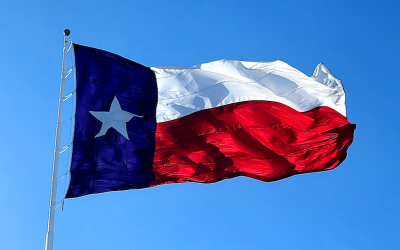Why MSc Programs in Data Science Are Booming

Companies are crying out for tuned-in managers who can turn their data deluge into actionable insight
It’s often said that all companies are data companies, but some of them haven’t realized it yet. Organizations, from across virtually every industry including finance and healthcare, have a deluge of data collected on customers and operations — we produce a mind-boggling 2.5 quintillion bytes of the stuff every day, and that figure is only growing.
The explosive growth of “big data” has led to explosive growth in demand for those who can leverage it to generate actionable insights. What was, the Harvard Business Review coined in 2012 the “sexiest job of the 21st century”, is even hotter today. McKinsey & Company, the consultancy, forecasted that there would be a shortage of 1.5 million managers and analysts clued up on data-driven decision-making by 2018 in the US alone.
Data science degrees are thus booming at business school, with the trend driven by the excellent graduate job opportunities, and the fear of disruption.
The 24 master’s in data analytics programs surveyed by the Graduate Management Admission Council received 12,667 applications in 2018, a 32 percent increase on 2017.
“Big data and data science are impacting nearly all functions of organizations,” says De Liu, academic director of the MS in Business Analytics course at the Carlson School of Management in Minnesota. “Those who don’t embrace and leverage big data face obsoletion.”
[See all Masters Programs in Business Analytics]
The school’s full-time program, 12 months long and far cheaper than many MBAs, is designed for recent college graduates. Students learn the management fundamentals and advanced data analysis techniques through case studies and “experiential” learning, such as working with companies to solve their data challenges at the Carlson Analytics Lab.
“This data science revolution has redefined the essential skills for many professions,” Liu says. It’s already, for instance, transformed investment, with asset managers increasingly deploying intelligent algorithms to spot potentially lucrative patterns in data sets.
The Carlson School receives about 600 applications each year for 90 spots on its data science course. Several other schools are drawing several hundred applications each year for similar programs.
The growth comes as applications for the traditional two-year MBA have fallen at the majority of US schools in 2018.
A growing interest in big data among master's students
Max Wang Shuai was encouraged to join the part-time MSc in Business Analytics program at Singapore’s NUS Business School in 2017 because of the growing corporate interest in artificial intelligence and big data.
“The program provides plenty of opportunities to explore different data techniques and solve the real data problems in industry,” says Shuai. “I gained solid knowledge, met talents from all over the world and obtained a lot of job opportunities.”
He works in Singapore, as a senior data scientist at Johnson & Johnson, the pharmaceuticals company, and believes his profession can improve companies’ efficiency, productivity and reduce costs. “Most employers are looking for talents from my degree,” he says, adding that an MBA is not essential to securing a management position.
Over the past year, NUS has received around 900 applications from all over the world for the course, to which about 120 people were admitted. “Students want to come to this emerging area,” says James Pang, the program’s co-director. “More enterprises are adopting data-driven processes and business leaders need to have a good understanding of data analytics.”
It is a similar story at the McCombs School of Business in Texas: between 900 and 1,000 people apply for one of 65 places on the MSc Business Analytics program each year. It attracts both business people and “techies”, says the program’s founder and the school’s associate dean, Prabhudev Koana.
“Many of our interested students have backgrounds in mathematics, economics, business, science, computer science, and engineering,” he says. “We expect any prospective student to possess a strong math background and basic programming skills in C, Python, or other procedural languages.”
The Mendoza College of Business, at the University of Notre Dame, recently launched a version of its established MS in Business Analytics program that is designed for fresh undergraduates with fewer than two years’ work experience, though some programs at other schools require work experience.
Admissions opened only a few months ago and the school reports that over 200 applications have been started. Entry requirements for the pre-experience program include an undergraduate degree with a statistics course, and at least two business courses. “We also require them to submit either a GMAT or GRE score, with particular attention paid to the quantitative portions,” says Scott Nestler, the program’s director.
He expects to have 25-30 students in the first cohort. “Our intent is to keep it small, initially, to maintain high quality and personalization, and then grow as interest and resources allow,” he says.
The job market for data science MSc grads
The job market for graduates is expected to be especially buoyant. McCombs’ students, for example, work in finance, accounting, marketing, supply chain, and healthcare as data analysts, scientists and in more roles. “Many of them take consulting jobs that require data analytics skills,” says Koana. “Overall, this entire profession is growing.”
At the Carlson School, Liu says the degree is industry agnostic: “Our graduates are placed in a wide range of sectors, including financial services, consulting, retail, technology, healthcare, entertainment [and] non-profit,” he says.
Mendoza’s Nestler agrees. “The career opportunities for [data science] graduates are currently limitless; I expect they will remain so for some time.”







